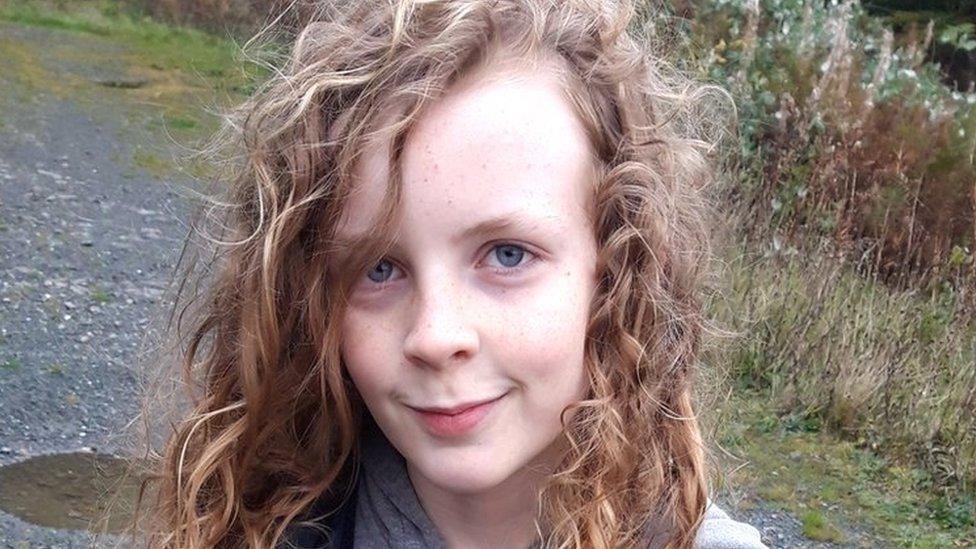Wales local council elections: What are the parties promising?
- Published
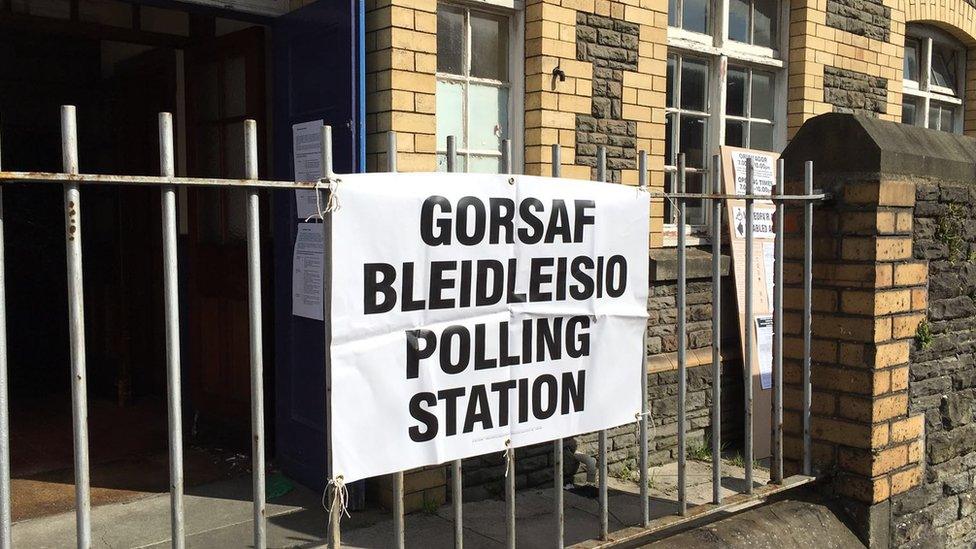
On 5 May, voters in Wales will go to the polls to elect 1,234 councillors
With just days left until the council elections on Thursday, the main parties in Wales have been making their case to the voters.
Labour has been focussing on the cost of living crisis, while Plaid Cymru aims to extend free school meal provision.
The Conservatives have promised to keep council tax low.
On 5 May, voters in Wales will elect 1,234 councillors to represent the 22 local authorities.
Welsh Labour is still the biggest party at council level with 472 seats won at the 2017 election, despite losing more than 100 councillors and majority control of three councils - Bridgend, Blaenau Gwent and Merthyr Tydfil.
It retained majority control of seven Welsh councils.
Launching the party's election campaign at the start of April, Welsh Labour leader and first minister Mark Drakeford blamed the Conservatives for the cost-of-living crisis.
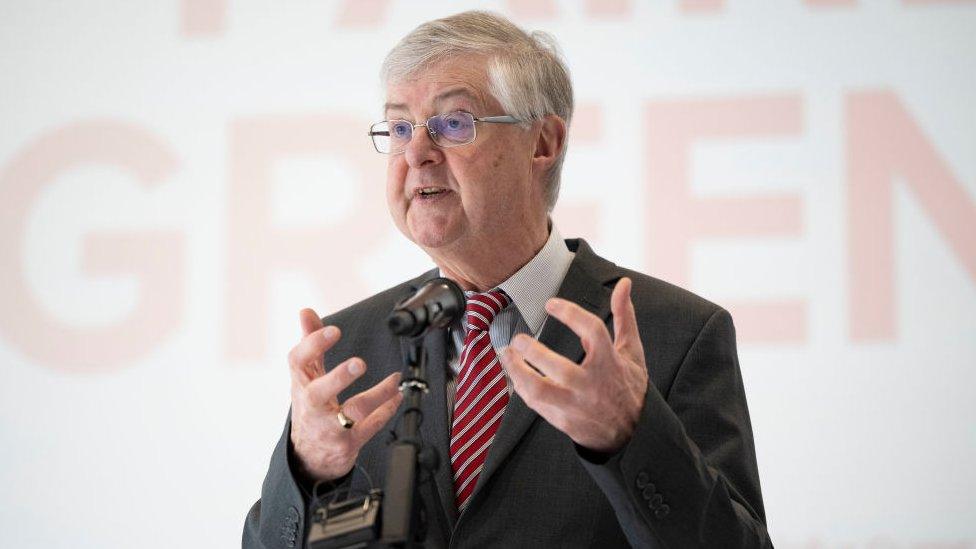
Mark Drakeford said Labour was prepared to think about a wide range of ideas to help those struggling financially
But asked on the BBC Politics Wales programme how electing Labour councillors would actually help people who are struggling financially, Mr Drakeford said: "How councils charge for the services they provide has a real impact on people who live in those areas.
"Labour-run councils will be taking all of that into account and doing everything that they can, alongside a Labour government, to help people with the cost of living.
"The Labour government here in Wales is always looking for ways in which we can take action ourselves that leaves money in the pockets of people who don't have enough money, and particularly don't have enough money in current circumstances.
"There's a wide range of practical ideas that we are prepared to think about," Mr Drakeford added.

Plaid Cymru was the second biggest party after the last council elections, winning 202 seats - up 33 since the 2012 elections.
Plaid currently leads four councils in Wales - Carmarthenshire, Ceredigion, Anglesey and Gwynedd.
The party's aim is that Plaid-led councils will extend free school meals to all their secondary school pupils.
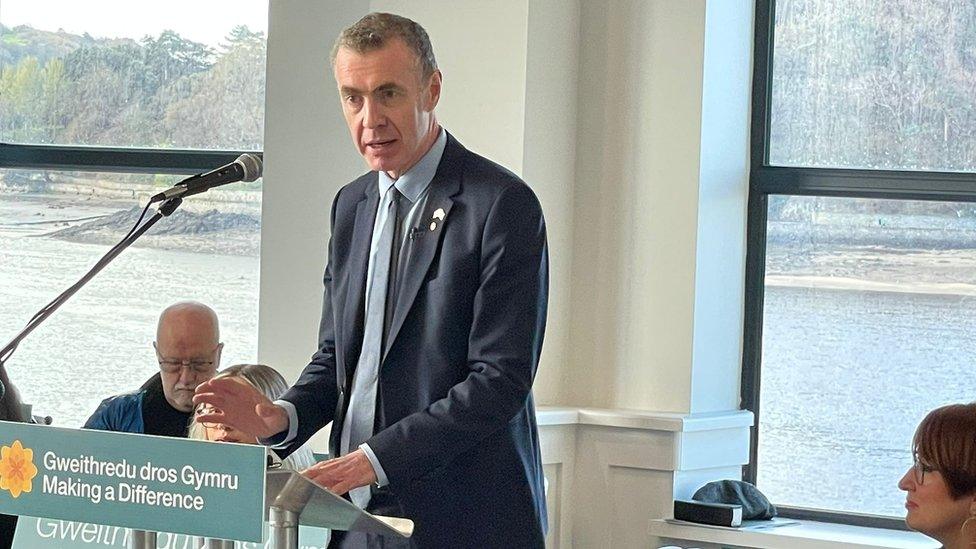
Adam Price said child hunger was a priority
Mr Price told Politics Wales the policy aim was a "priority... because getting to grips with the situation, incredible as it may seem, that we are dealing with child hunger in an advanced economy like ours, has to be a priority."
He added: "Let's look at the experience in England, where the context is very similar.
"There we have seen local authorities that have moved beyond the centrally-funded provision for universal free school meals into primary and even into secondary.
"What we want to do is to apply the lessons from that here in Wales."
The Welsh Conservatives were the biggest gainers in the previous Welsh local elections in 2017, winning an extra 80 seats.
The party runs Monmouthshire Council with a majority, and has cabinet members in ruling coalitions in Powys, Wrexham, Conwy and Denbighshire.
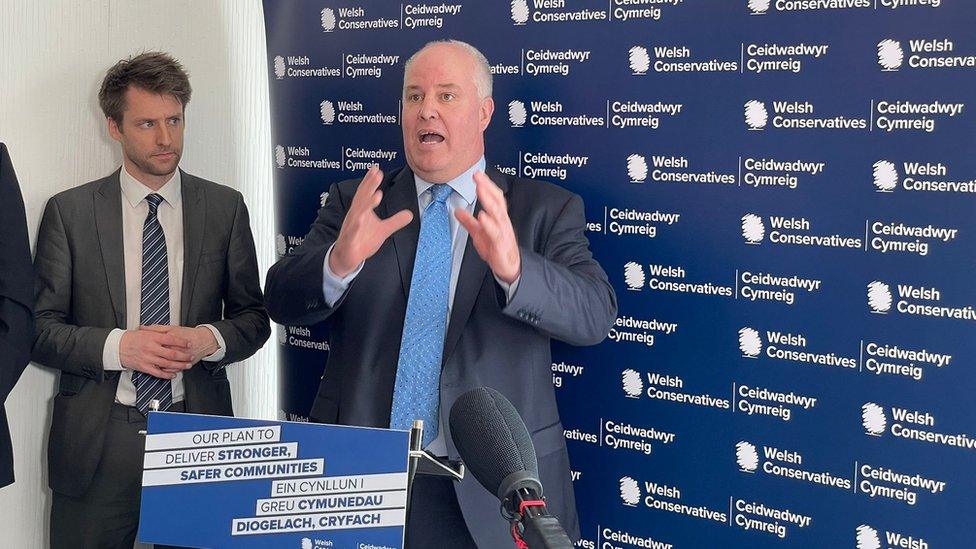
Andrew RT Davies said the Conservatives would aim to deliver "low council tax settlements across Wales"
The Welsh Conservatives promised to tackle "bread and butter issues" when they launched their local election campaign.
Tory Senedd leader Andrew RT Davies told Politics Wales the Conservatives would aim to deliver "low council tax settlements across Wales".
He added: "That money is best left in people's pockets, rather than paying in taxes.
"We will deliver those services in as efficient a way as possible, whether it is a rural authority or an urban authority."
In 2017, independents were the second biggest group with 322 councillors, whilst the Liberal Democrats won 62 seats, Llais Gwynedd returned six councillors, and there was a single Green councillor.
- Published25 March 2022
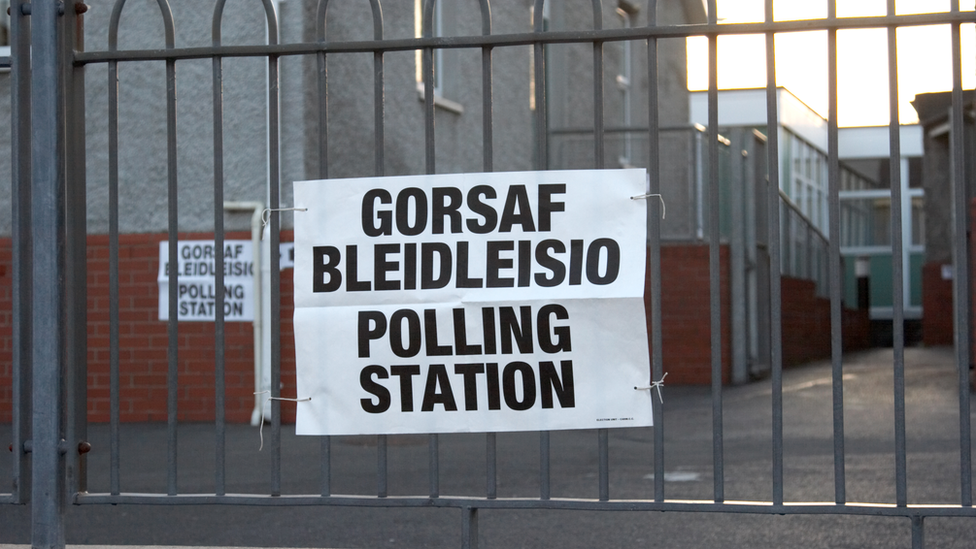
- Published5 April 2022
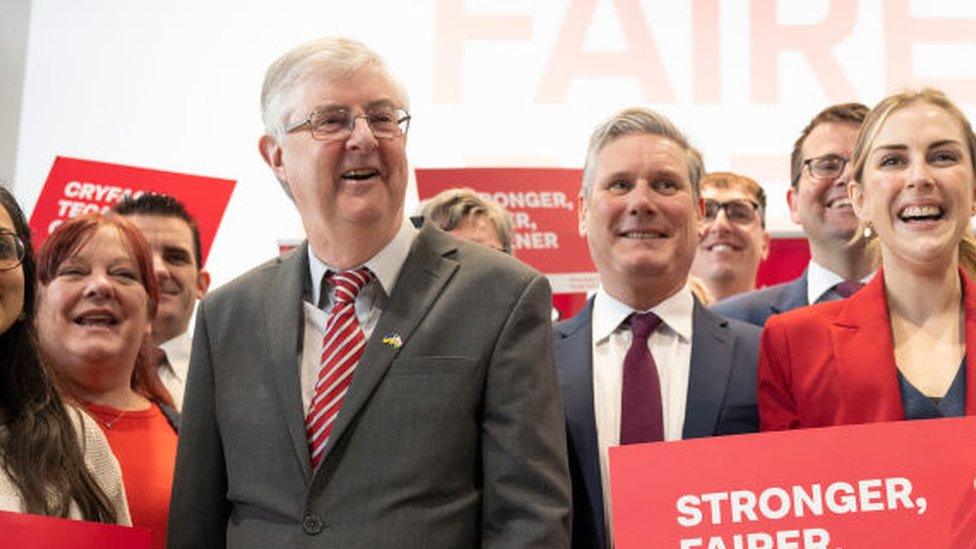
- Published8 April 2022
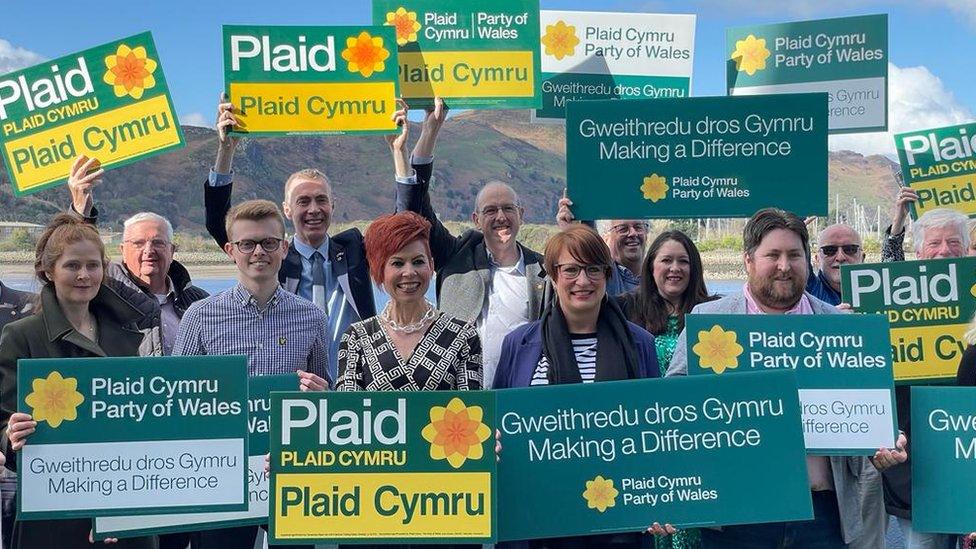
- Published7 April 2022
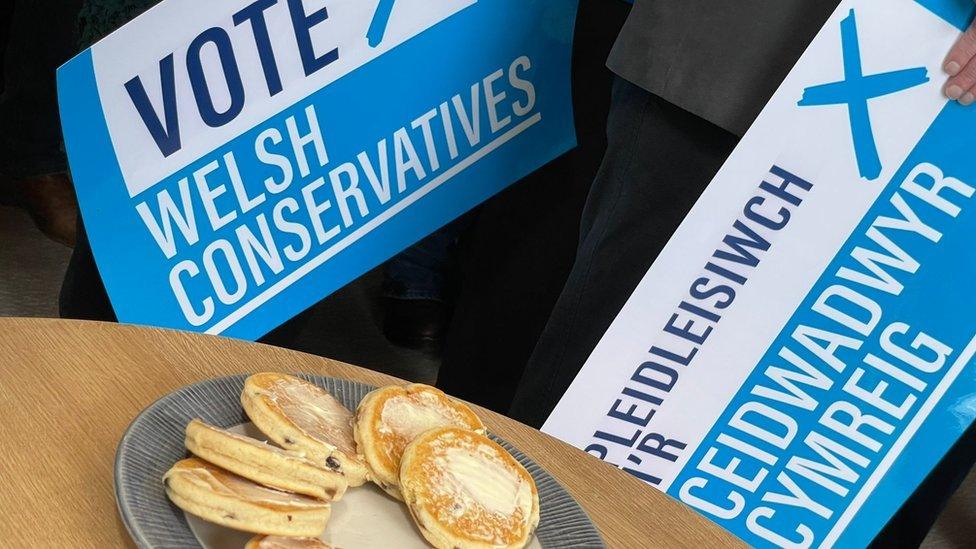
- Published29 April 2022

- Published28 April 2022
